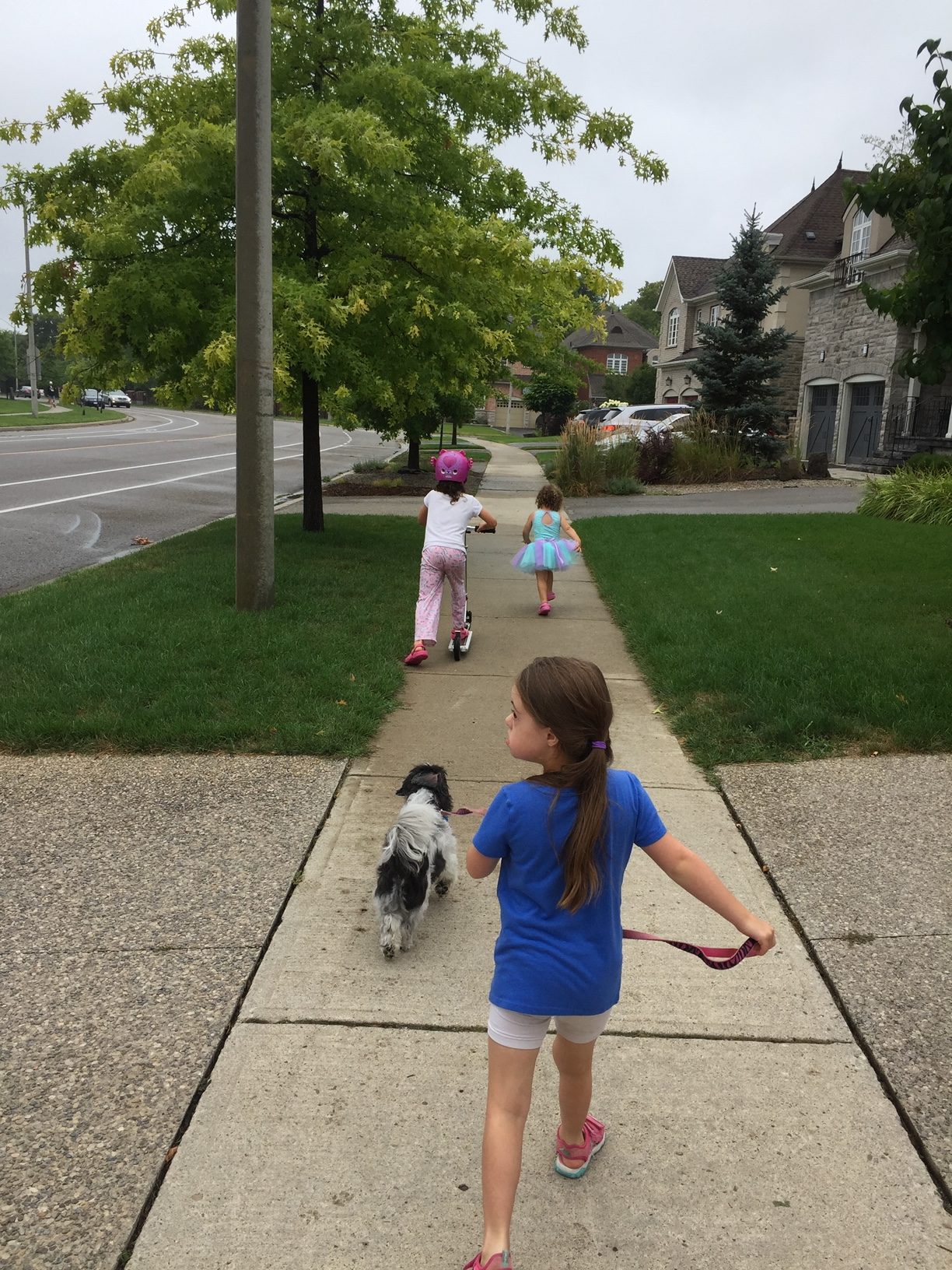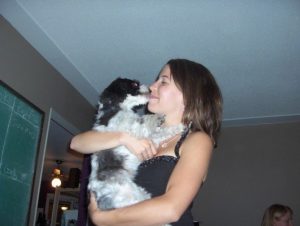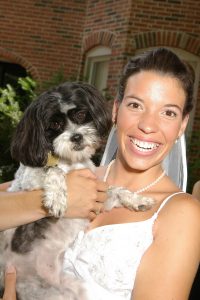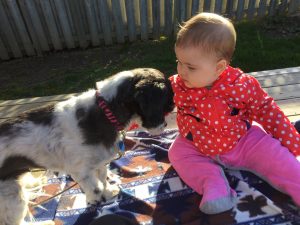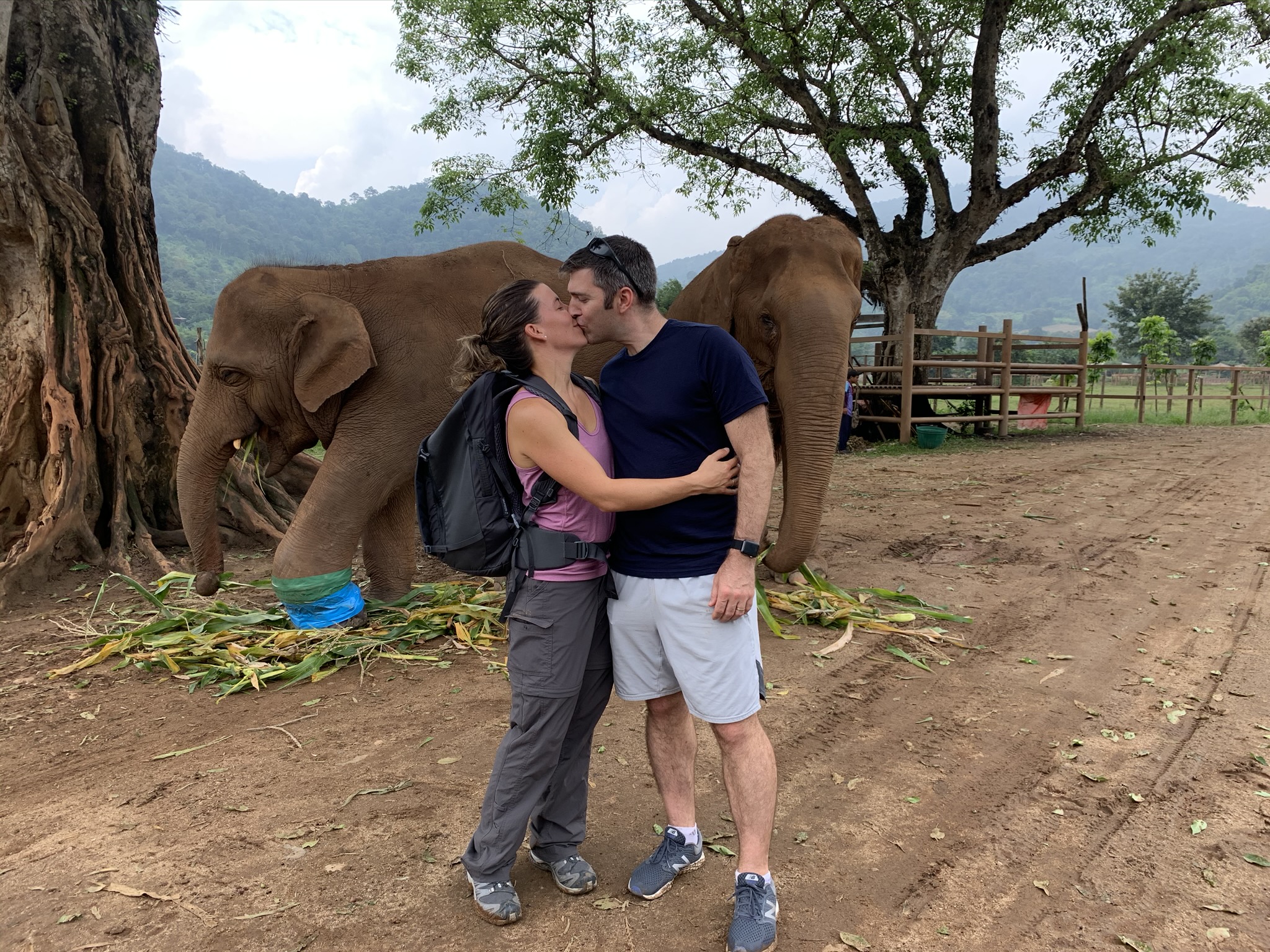I am debating with myself whether I am really going to go from a post about my dog dying to seething rage. I’m going to do it. Angry Adelle says fuck it.
Angry Adelle is a real person, a part of me, though only a select few have met her. My husband, my children, my parents, my brother, and likely my in-laws have caught the cusp of her. In her element, at full appearance, she is a beast to behold.
I felt a storm brewing this morning, that old combination of not enough time, too much to do and take care of, too little support. This may be the war cry of women everywhere. Angry Adelle’s appearance this morning was in relation to wanting to work and be free of childcare responsibilities in direct contrast with my current reality. Whoa, whoa, whoa, let’s back up a minute and dissect what I just said.
I want to work. I want the time and luxury that my husband has in his career to immerse myself in my art, in my passions, in my writing so I can build a career. I should be clear that I have some of this already; I likely have more of this than a lot of people, but Angry Adelle doesn’t give a fig about other people – emotionally extreme versions of ourselves are selfish like that. My husband is totally supportive in regard to my building a career as a writer, but truthfully our society isn’t. People who love me, friends and family, struggle with the idea that I need time to write. When it comes to what we value as a society, money talks. If I were a gainfully employed, full-time hours, read: paid creative writer, there would be no question that I should, for example, receive moral support in finding childcare when school is not an option. That I should not have to squeeze my work day into a six hour frame on the days when I do have support. But, to become a paid and published author, and more important still, a better writer, imagine that I need to practice. Daily. Imagine this required time, which it most certainly does. Ten thousand hours plus to become an expert, to be exact – where is society’s support then? The idea of supporting oneself through one’s art alone is ludicrous to the point of being a farce in Canada. The top one percent of writers will potentially do this, but even their roadway is not paved in gold. Many award-winning Canadian authors hold down regular paying jobs to support their art, and here’s the catch-22 for the emerging writer: to qualify for any grants or bursaries in Canada, you need to have at least one book published. My first book took me over three years to write, and I’m still seeking publication with response times from publishers that can be obscenely long, a process that is pushing four years, soon to be five. That’s a long time to go without a paycheck.
The struggle to become an established writer is real and alike for men and women writers, but there is the added stigma that women should be managing their families and their homes, an added responsibility that takes time away from their writing. This is what’s grating at me lately. The obligations of my sex. Men at large seem to be released from this particular association of women and house.
Now I’m not trying to play the victim. You’ve made your bed, now lie in it. I built this life I’m living and I am an active participant in the choices that have gotten me where I am, master of the house and all. I mean, ladies, could we really leave it up to the men? Come on. Yes! Yes we can. And we should! I do when I can. You should! If you ever want any time to yourself to get some work done. I love my kids, but there has to be a balance. Now let’s get into this building a new career and having kids thing.
I am starting anew, and building a career in writing after having three girls. Let’s dissect having three girls. First of all, I chose my life with my girls. I loved being home with them – mostly. The ability to stay home was a gift for which I can thank my husband’s career. Not to sell myself short, before there was his career, there was my career that carried us into our first home. For me to stay on at home with each of our babies, there would not have been another way without my husband’s salary. He thanks me in return, for the time I have invested in our family. Eight years have come and gone. I nursed each of those babies to completion. I fed them, walked them, watered them. They grew tall, strong and narrow toward the light. I have guided them to the best of my abilities and sacrificed myself many times to do so. And I’m done. I don’t want to be the one to do all the sacrificing anymore. And this is where Angry Adelle and the rage comes in. I think this is a collective rage of women of old, of days gone by. Felt by women since there was a man to look down on her and keep her in the home. Felt by the Austens and the Brontes and the Woolfs. None of these women writers had children though I’d take my freedoms over theirs any day. Two hundred years ago women needed permission and an escort to leave the hearth. And there was no time to write and what decent woman would? Women could write letters, say in their idle time, if they were attending to an ailing father’s bedside, but Writing was a man’s domain. Sadly the only writing about women from that time is by men.
The rage that bubbled forth inside of me was not directed at my children, for they are innocent; or for my absent husband who’s earning a living for our family. The rage that boiled forth was a resentment of circumstance; circumstances that make it hard for me to write. Maybe this post is about not getting in my way, not getting in the way of any female who knows what she wants and is ready to earn it. Maybe it’s about acknowledging the brunt of the work women have taken on for centuries, millennia even, that goes unpaid and therefore unvalued and unappreciated, or maybe it’s about a writer struggling to find her way and make a living in exchange for creativity. Do we still care about passion and creativity? Do we value artists who make art in its various forms as a society? Do we value the unpaid work of (mostly) women? I think we can do better. Maybe this post is about all those things combined, the underlying seething rage, the entrapment of domestic life and the monotony of the daily grind. Maybe this is a way for me to push back, as a woman and a mother, and say, “hey! I’m still here.” Maybe I’m just taking a hard look at myself and not liking everything I see.
But here’s what I do know. Angry Adelle comes and goes. She was here before lunch, I fed her well and was joined by good company, a fellow female creative, and regular Adelle, also known as me, Adelle, is back now and in good cheer. Kinship and companionship have a way of doing that, lightening and elevating the mood. Fellow creatives unite! That soothes the soul, too. So does doing a good deed.
On my way to lunch, working through my snit, a man stood waiting for me as I parked my car. What did this asshole want? He better not try and mess with me. Grrr…Angry Adelle.
Turns out he needed a boost for his wife’s car, which he was quick to point out was a bit of a junker and he could hardly squeeze himself into it. I saw the car right across the street and immediately agreed to help him, texted my friend to say I’d be a few minutes late, and left with a different perspective than the one I came out with.
“You sure have a nice car,” he said, “really good motor too.” My shiny red van happens to be brand new. I am not a starving artist. My husband supports me. When he called his car a junker, I told him we had a junker, too. The car my husband drives used to be mine when I bought it fifteen years ago for work. That car could go and at any moment it might. My husband makes sacrifices for our family too; I think most modern, forward-thinking men do. These men are invested in raising their families and raising up their wives. I’m incredibly fortunate to be married to such a wonderful man. Also, I know when our car breaks down, we have the financial security to replace it.
With his car hooked up to mine, the gentleman’s car started right away (notice how he’s a gentleman now? That’s the power of a change in perspective)
“That’s it? I asked. His needs were simple.
“That’s it, thank you so much!” and he repaid me with a kind smile.
This man did not look down on me one bit. Ironic how good helping can feel when it’s not forced or ritual or expected. When it’s just a person helping a person in need.
My rage subsided; it usually does. But there’s a history there. Back to work.


